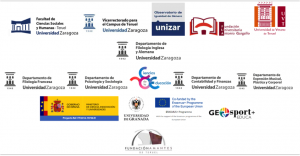DETAILED CALL FOR PAPERS/CONVOCATORIA DETALLADA
KEY DATES:
| Deadline for submission of proposals | 2 June 2019 |
| Notification of acceptance/rejection of proposals | 17 June 2019 |
| Early bird registration | Before 14 August 2019 |
RESEARCH QUESTIONS AND METHODOLOGIES:
We are looking forward to a varied programme and invite abstracts in any of the conference languages (English, Spanish, French and Italian) for full workshops, papers, posters, short work-in-progress reports in the pecha kucha format, as well as panels adhering to any of the following broad research questions:
- Which persuasion strategies predominate in oral, written and multimodal discourse?
- Which of the three Aristotelian modes of persuasion (ethos, pathos, logos) stands out in different contexts? How is each communicated?
- How are the fuzzy boundaries between persuasion and manipulation revealed in today’s hybrid, multicultural and post-truth societies? How may information come to be manipulated in various contexts (e.g. political, journalistic, corporate/management, etc.) to suit and further the interests of “[…] one party […] against the best interests of the recipients” (Van Dijk 2006: 363)?
- How far does the perceived transparency, efficiency and honesty of certain power structures contribute to the perceived veracity and persuasiveness of their messages? How are those messages construed to further enhance and protect their public image?
- Does persuasion underlie any communicative event, just as emotion or affect?
- What emotions are most likely to contribute to persuasion in various contexts? How are persuasive messages construed and conveyed to tap into those precise emotions?
- What discursive strategies (verbal and non-verbal) are most effective in various contexts (professional, public, private) and through various channels (face-to-face, on-line, etc.)?
- What persuasive strategies seem to prevail in different languages? What strategies seem to be most effective in particular languages, but not in others?
- In an increasingly globalised world, what strategies of intercultural mediation may work better when conveying persuasive messages that, in some way or another, may affect or influence people from various origins and with various L1 backgrounds?
- What role do sociolinguistic variables such as age or gender play in persuasion?
- Is there any link between identity and the use of particular persuasive strategies? How are age or gender identities discursively construed, shaped and reinforced in persuasive contexts?
- How and to what extent is persuasion used in today’s highly connected world as an instrument to boost discrimination on the grounds of ethnicity, age, sex, sexual orientation, belief, disability, etc.? What persuasive strategies are used to prevent, counter or remove any kind of discriminatory practice?
- How is (in)equality of any kind reflected, addressed, tackled, promoted etc. in media discourses constructed and reproduced in various contexts (e.g. education, sport, art, etc.)?
- In which genres is persuasion most explicit and why? Where is it most implicit? How is persuasion revealed and processed in those cases where it is construed implicitly?
The following areas and/or methodological approaches must be understood as a general guideline that can be further extended:
- (Critical) discourse analysis/studies
- (Critical) genre analysis
- Appraisal theories of emotion
- Cognitive linguistics
- Conceptual metaphor theory
- Construction emotion theories
- Content analysis
- Contrastive and intercultural pragmatics
- Corpus-based/assisted discourse analysis
- Cultural studies
- Film studies
- History of ideas
- Language teaching and learning (Genre pedagogy, CLIL, etc.)
- Linguistic anthropology
- Literacy studies
- Literary studies
- Media studies
- Multimodal discourse analysis
- Neurolinguistics
- Political communication
- Psycholinguistics
- Relevance theory
- Rhetoric
- Sociolinguistics
- (Corpus) Stylistics
- Systemic-functional linguistics
- Translation studies
